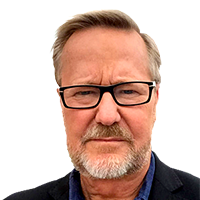This should be the PM’s blueprint for Panama Papers


Getty
Prime Minister Malcolm Turnbull can act immediately to attack what has been exposed as systemic and entrenched global country-of-origin tax evasion.
With more revelations now expected from the Panama Papers, a massive leak of data from Panamanian law firm Mossack Fonseca, the political pressure on all governments is expected to intensify.
To respond to that pressure the Turnbull government can immediately extend the jurisdiction of AUSTRAC, the criminal money laundering international tracking agency operating out of Chatswood, New South Wales.
• Why the Panama Papers matter
• Messi’s family denies ‘Panama Papers’ tax evasion
• Panama papers: Wilson linked to scandal
It could be resourced to track registration of corporate structures in the world’s known tax minimisation jurisdictions and prepare briefs of evidence in readiness for new complementary laws to at last prohibit or inhibit the tax haven phenomenon.

Malcolm Turnbull should take immediate action. Photo: AAP
And the government can legislate to prohibit all Australian-based or local branches of international accountancy and law firms from establishing tax evasive corporate or transfer pricing structures constructed through registering originating entities in tax havens.
While the G20 2014 meeting in Brisbane flagged a concerted effort to combat tax havens, nothing much appears to have happened locally.
UK Prime Minister David Cameron has convened an international conference of G20 leaders in London, tentatively set for May 12, with another 20 or 30 countries invited.
Attorney-General George Brandis is working on a legislative response arising from the G20’s Brisbane parameters decided in 2014.
At this stage it is understood the AG’s department is looking at anti-money laundering and counter-terrorism financing provisions to cover professionals who may become involved with these criminal and terrorism motivations.
According to Transparency International Australia CEO Phil Newman, the Panama Papers revelations indicate Australia’s response now needs to go further to white collar motivations.
“We’re quite strong in advocating that current anti-money laundering provisions which don’t cover accountants, lawyers, or the real estate sector should be extended to cover those professions because these are the groups which handle the transfer of money to a large degree,” Mr Newman said.
“If AUSTRAC was to have its scope extended, obviously that would come with a cost and the government would need to think about how they resource that.”

Hollywood star Jackie Chan was connected to the scandal, with revelations he had at least six companies managed by Mossack Fonseca. Photo: Getty
Mr Newman said AUSTRAC helps to protect the integrity of the Australian banking system and its potential use as an international money launderer by being required by law to log and report each day to AUSTRAC all money transfers, domestic or international, of $A10,000 or more. But AUSTRAC’s remit does not cover money transfer from corporate structures originating in tax havens.
Mr Newman said the move to constrain law, accountancy and real estates firms “would put in place a framework that would at least make people stop and think about what they’re doing”.
Transparency International has three suggested measures to combat the now extensive use of tax havens for both criminal money laundering and white collar ‘kleptocracy’ by both corporations and well-connected individuals.
All governments should establish central searchable registries disclosing beneficial ownership information.
Professional enablers, accountants and lawyers should suffer sanctions, including withdrawal of practicing licences on any proven involvement in corrupt/prohibited corporate structures.
All companies and corporations bidding for public contracts should be required by enforceable law (with penalties for non-compliance) to declare who is in ultimate control of the entity. This would be a countermeasure to the use of conduits and front companies to hide the ultimate beneficial interest.
Over to you, Prime Minister.








